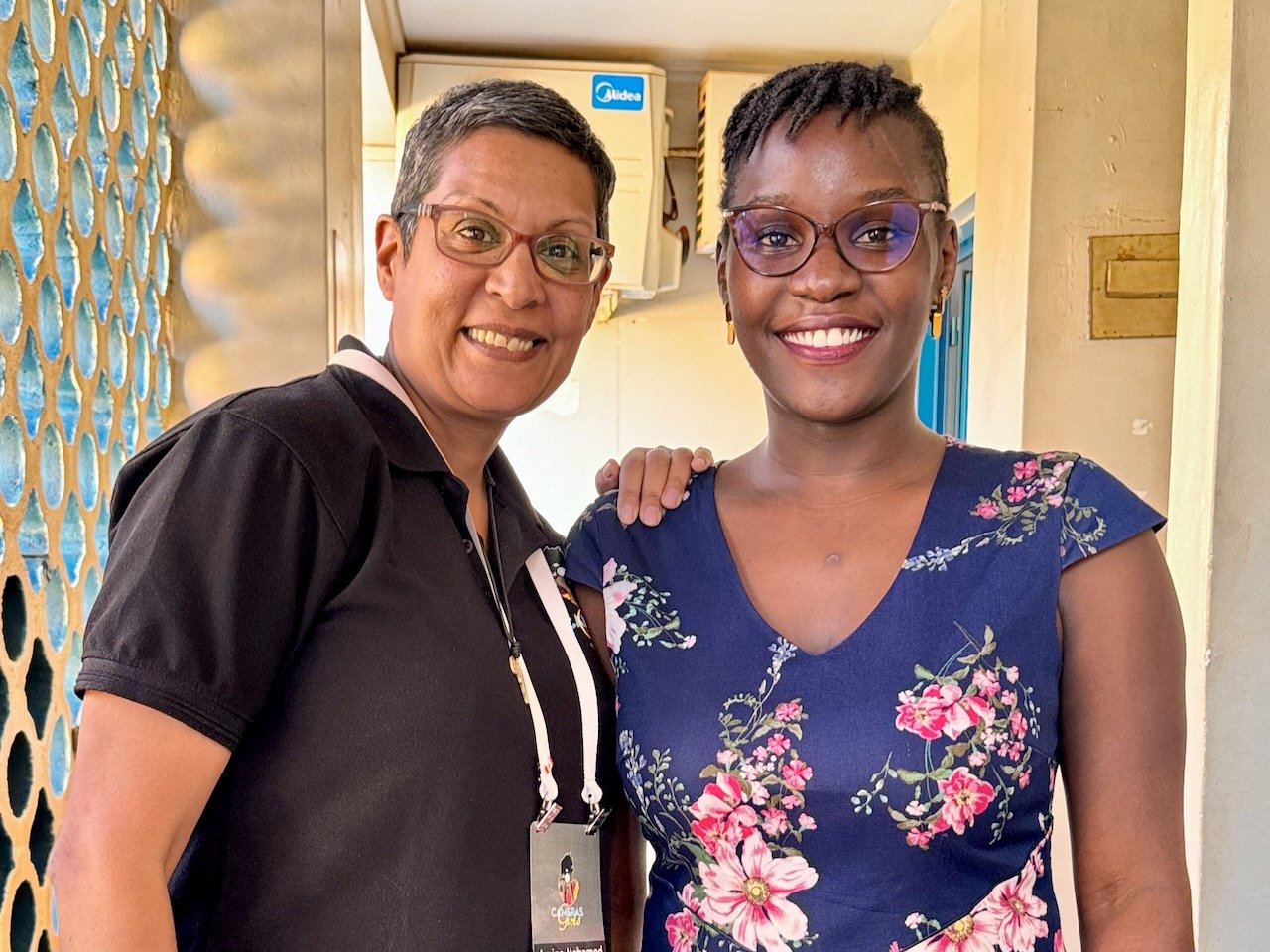Cameras For Girls Builds Safety and Strength for Women in Media
At Cameras For Girls, we do more than teach photography — we create a space where young women can reclaim their voices, safety, and futures. In Uganda and Tanzania, where our in-person programs are currently running, women entering the workforce are confronted with deep-rooted gender-based barriers, especially in male-dominated fields like media and communications. These young women face financial hardship, lack of access to equipment and training, and often, the unspoken threats of sexual harassment and mental health struggles.
Ignoring these realities would be a disservice to the women we aim to INpower. That is why every 4-day workshop we run is intentionally structured to go beyond the lens. While most of the workshop focuses on teaching the technical skills of photography and ethical storytelling, we also devote time to address the emotional and psychological hurdles our students face, creating a holistic learning environment that acknowledges and actively addresses their lived experiences.
Amina and Dr. Melanie Magoba, at the Workshops in Uganda.
A Persistent and Pervasive Threat
According to a 2020 report published by Statista, 56 percent of women working in African media have experienced verbal sexual harassment, and 38 percent have faced physical harassment. These figures are almost double those of their male counterparts (24 percent and 15 percent, respectively), illustrating a clear and pressing imbalance in workplace safety.
These realities are not abstract for the girls we train. Many come into our program with firsthand stories of discomfort, trauma, and fear. Many are left feeling isolated and powerless without the tools to navigate such situations or speak openly about them. This is why we bring in mental health and gender rights experts to facilitate open and honest discussions during our workshops.
The girls open up about their experiences after some gentle urging and a reminder that they are in a safe space. Everyone on the team, including the mental health expert, this time Dr. Melanie Magoba, is vested in teaching them strategies to advocate for themselves and others.
Making Mental Health a Priority
Mental health is a critical piece of this conversation. The World Health Organization estimates that about 100 million people in Africa suffer from clinical depression, with women disproportionately affected. Unfortunately, the continent has an average of only 1.4 mental health workers per 100,000 people, compared to the global average of 9.0 per 100,000.
In each of our workshops, we ensure that a portion of the time is reserved for conversations about mental well-being. We invite professionals like Dr. Melanie Magoba, a psychiatrist and passionate advocate for young women, to engage directly with our participants. Her sessions explore mental resilience, coping mechanisms, and, most importantly, the validation that the emotional burdens these women carry are real and worthy of attention.
When One Speaks, Others Find Their Voice
The most powerful change happens when our students begin to see themselves not only as storytellers but as people worthy of safety and dignity. During one of the workshops in Tanzania, one young woman bravely challenged the idea of speaking out.
“But we can’t say anything. We need to stay silent,” she told the group.
I gently asked her, “Who told you you must be silent?”
The instructor at the time, Zuhura Khateeb, the media, peace and conflict expert at the University of Dar es Salaam’s Journalism program, echoed that message, encouraging her and others to imagine a different possibility, one where their voices had power. Two months later, that same young woman was riding home on a public bus when the driver and a male passenger accosted her. Before the situation could escalate into violence, she managed to escape and ran straight to a police station to file a formal complaint. As a result, the bus driver was charged, and both men were required to pay a settlement out of court.
This young woman’s bravery became a turning point, not just for her but for her entire community of peers. She did not just survive. She advocated. She took action. And by doing so, she reminded every girl in our program that they do not have to suffer in silence.
Building Safety into Our Framework
At Cameras For Girls, INpowerment is not just about teaching photography. It is about making sure that every girl we train knows her worth, feels her voice matters, and understands that she is not alone. We integrate mental health and safety into our core curriculum because we believe that our students cannot thrive as professionals until they are safe and supported as individuals.
This is the kind of future we are building — one camera, one workshop, and one brave story at a time.

